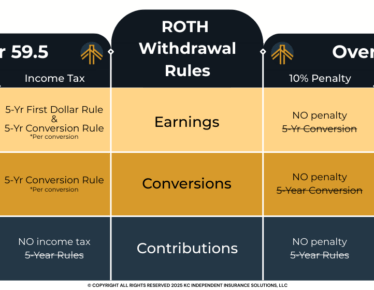Here’s What Matters Regarding Annuity Bonuses and Roll-Ups
Suppose you’ve been shopping for a fixed indexed annuity (FIA). In that case, you’ve probably seen offers advertising a 30% bonus or an 8% to 10% roll-up rate. And naturally, you’re wondering: Which one is better for me?
We hear this question often from clients. These numbers sound impressive, but they can be incredibly misleading. When it comes to retirement income, it’s essential to understand what those numbers mean—and what matters to your long-term goals. Let’s walk through it together.
Understanding What’s Being Offered
Every fixed indexed annuity comes with two key values:
- Cash Value – This is the amount that grows based on the performance of a market index (like the S&P 500). It’s your actual, accessible money.
- Income Value (Living Benefit Base) – This is a formula-driven number used solely to calculate guaranteed lifetime income. It is not withdrawable like cash and is where bonuses and roll-ups apply.
So when you hear “30% bonus” or “10% roll-up,” know that these figures only apply to the income value, not the cash value.
The Bonus Isn’t a Cash Gift
A bonus doesn’t increase your actual savings or grow your account like a deposit would. Instead, it’s applied to a benefit formula. It may make the product sound better, but in many cases, the final income payout is no different from an annuity without a bonus.
Here’s the formula we use to help clients compare options: A × B = C
- A = Income base (after any bonus or roll-up)
- B = Payout factor (the annual withdrawal rate)
- C = Your guaranteed annual income
For example, if you invest $100,000 and receive a 100% bonus over time, your income base becomes $200,000. If the payout factor is 5%, your guaranteed income is $10,000 per year. Now compare that to an annuity with no bonus, but a 10% payout on the original $100,000—same $10,000 annual income.
In both cases, the final payout is identical. The path may look different, but the outcome is the same.
How to Evaluate Annuities Accurately
Here’s the bottom line: the bonus and roll-up numbers are often just marketing tools. They do not determine how much money you will receive in retirement.
Instead, ask for a side-by-side illustration using a $100,000 deposit. Focus solely on the final annual income payout. If one product pays $6,000 per year and another pays $10,000, now you’re comparing what matters—actual income, not hype. This approach cuts through the confusion and allows us to compare products using real, measurable results.
Other Important Factors to Consider
When we work with clients, we never look at payout alone. A smart annuity strategy takes into account:
- Inflation protection and how your income keeps pace over time
- Long-term care or nursing home multipliers
- Liquidity and how much access you have to your money
- Fee structures and potential surrender charges
- Growth potential of the cash value based on index strategies
No two annuities are the same, and a strong recommendation depends on how well the product aligns with your whole retirement plan.
Our Approach
We’re independent advisors. That means we aren’t tied to any one insurance company, and we don’t charge a fee to sit down with you and walk through your options. We’re paid directly by the insurance company if you decide to move forward, and we’re committed to complete transparency in everything we do. That includes telling you when an annuity isn’t the right fit.
If you’re considering an annuity and want a second opinion—or want to understand your options in plain terms—we’re here to help. Let’s make your retirement income plan clear, confident, and built around what truly matters to you.
Contact Us Get in Touch
Have a question or feedback?
Fill out the form below, and we’ll respond promptly!

By providing your name and contact information, you are consenting to receive calls, text messages, and/or emails from a licensed insurance agent about Medicare Plans at the number provided. You agree that such calls and/or text messages may use an auto-dialer or robocall, even if you are on a government do-not-call registry. This agreement is not a condition of enrollment.
Not connected with or endorsed by the United States government or the federal Medicare program. This is a solicitation of insurance, and your response may generate communication from a licensed producer/agent.



